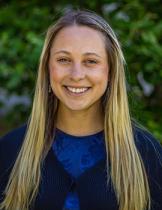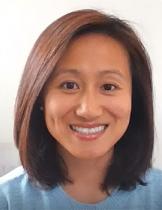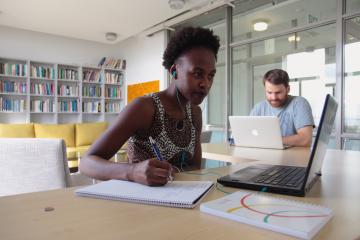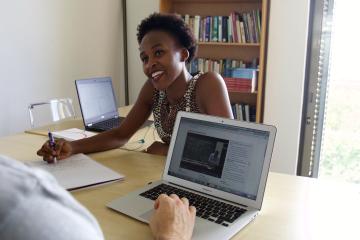
The future of the DEDP MicroMasters program
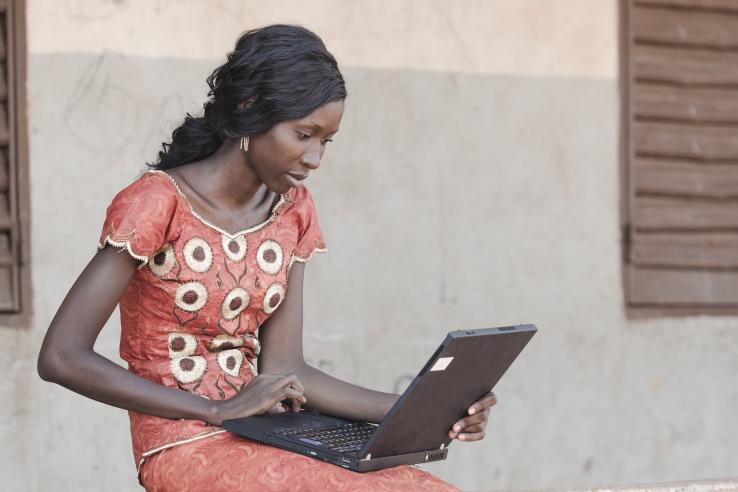
In the first of our two posts marking the five-year anniversary of the Data, Economics, and Development Policy (DEDP) MicroMasters program, we shared how the program has evolved over time. In this second post, we highlight a few points of progress and plans for the future of the program.
For the next five years and beyond, we will focus on diversity, equity, and inclusion in expanding our body of learners, supporting our existing learners so they have the right resources to have a successful journey through the program, and expanding the DEDP MicroMasters curriculum to cover more facets of global poverty challenges and alleviation.
Continuing to diversify our student body
A student population which better reflects the demographics of the world at large will be better poised to implement change for good worldwide. Our firm belief in this reinforces our commitment to continue striving to diversify the pool of DEDP MicroMasters learners and master’s students.
In particular, we seek to fill gaps in several populations which are currently underrepresented in our learner population: women, low income learners in the US, and learners around the world where there is poor access to high-quality graduate education.
We plan to do this by leveraging our online learner data to inform our decisions, fundraising so that we are able to offer more scholarships to low-income learners, and building and strengthening relationships with local organizations to increase the visibility and access of the program.
Data analysis
To be intentional in our efforts to diversify our learner population, we must first understand the reasons why certain groups are underrepresented.
For example, our previous analysis of gender equity in our courses revealed trends that are interesting, though not entirely unexpected given what we have observed in terms of gender disparities within the field of economics.
Despite broad access to our program and reduced barriers to entry, four years into the program, we saw that women enrolled in the program at half the rate of men. The difference in enrollment prompted us to take a deeper look into where women are dropping off in the program and what we can do about it. This research marks the beginning of our efforts to study ways to increase the share of women in the program and continue to structure our program to help learners feel more supported and prepared.
We have since begun to release course content early so that students can preview assignments. We have also created course previews, compiled preparatory math and coding resources, and introduced new discussion channels for learners to connect and share resources.
In making these changes, we hope learners enrolled in DEDP courses find it easier to persist with the program and eventually earn their credentials. Read more about our analysis.
We intend to conduct similar analyses on a variety of other traditionally underrepresented groups to uncover trends and identify ways to support these learners through their journeys in the DEDP MicroMasters program.
Ongoing efforts to fundraise for scholarships
While learners can audit all DEDP MicroMasters courses for free, learners are charged between $250 to $1000 per course, depending on ability to pay, to take the proctored exams on their way towards earning a credential. While our pricing structure allows us to accommodate many learners’ financial constraints, there are some who would still struggle to afford the exams. Thus, we are engaging in ongoing efforts to fundraise for scholarships that would allow anyone to earn a MicroMasters credential, regardless of their financial status.
For example, we are grateful for the Lemann Foundation for their generous support in providing scholarships for MicroMasters learners from Brazil, and the Riady Foundation for their support of learners from Indonesia and from Southeast Asia at large. Are you from these regions and interested in learning more about these scholarships? Contact us to learn more!
Partnering with local organizations
Jointly implemented by MIT and J-PAL, the DEDP programs are well-positioned to expand worldwide. J-PAL’s network of seven regional offices in Africa, Europe, Latin America and the Caribbean, the Middle East and North Africa, North America, South Asia, and Southeast Asia presents a great opportunity for us to build connections and work strategically with our partners in these regions to increase the visibility of the DEDP MicroMasters program.
For example, J-PAL South Asia’s partnership with the Indian government provides incentives for civil servants interested in building their knowledge and practical skills on use of data and evidence to complete the MicroMasters and master’s programs. This partnership in turn provides us with a direct pipeline to new groups of motivated learners interested in their governments’ roles in development, and a promising model that we can consider replicating with other governments around the world.
Academic support for existing learners
The DEDP MicroMasters courses are carefully designed to build learners’ practical skills in advanced economics, econometrics, and impact evaluation, and as such require rigorous learning and assessment. While we currently offer academic support to learners throughout the courses, such as having community teaching assistants accessible online to field questions, we are excited to provide further support to learners to ensure a successful learning experience.
One potential avenue for such support is through targeted in-person tutoring that could be offered at community colleges or adult education centers. We would particularly like to focus our tutoring efforts in areas where learner performance has been historically lower.
As our courses are all currently offered in English only, another way for us to support learners would be to remove language barriers as much as we possibly can. Resources permitting, we hope to be able to make the courses accessible to non-English speaking learners by providing translated transcripts for our lecture videos.
Expansion of course offerings and broadening the scope of the program
When the DEDP MicroMasters program first launched in 2017, we offered five courses. Over the past three years, we have added two new elective courses to the program.
The first course, Political Economy and Economic Development, launched in 2019. The course prompts learners to explore why and how political institutions affect economic development and apply key theories and empirical techniques to real-world examples. The second course, Good Economics for Hard Times, launched this summer, and specifically addresses today’s most pressing issues in the United States and other advanced economies. The third addition, MicroEconomics and Public Policy, is forthcoming!
These courses offer new avenues through which learners can earn their MicroMasters credential as well as new perspectives on economic development.
Forging global partnerships
DEDP MicroMasters credential holders are eligible to apply to the DEDP master’s program as well as to earn credit at a number of pathway universities across the globe to accelerate their pursuit of a full master’s degree. These pathway universities have expanded the reach of our program and provide more avenues through which learners can use their certificates and credentials.
We currently have partnerships with 18 universities across twelve countries. We plan to further expand our network of pathways by collaborating with more universities and other educational institutions to accommodate the growing number of DEDP MicroMasters learners.
Join us
We hope that the DEDP programs’ achievements over the past five years speak for themselves. But we are also well aware that there is much more to do. We are excited to tackle the challenges ahead, and we hope you will stay tuned as we further develop the program!
Interested in joining the movement? The fall term of the DEDP MicroMasters program begins September 6. Enroll today! The next application cycle for the residential DEDP master’s program opens in December 2022.
Interested in providing scholarships to DEDP MicroMasters learners or master’s students? Contact us.
This is the second post in a two-part series—read the first post.

